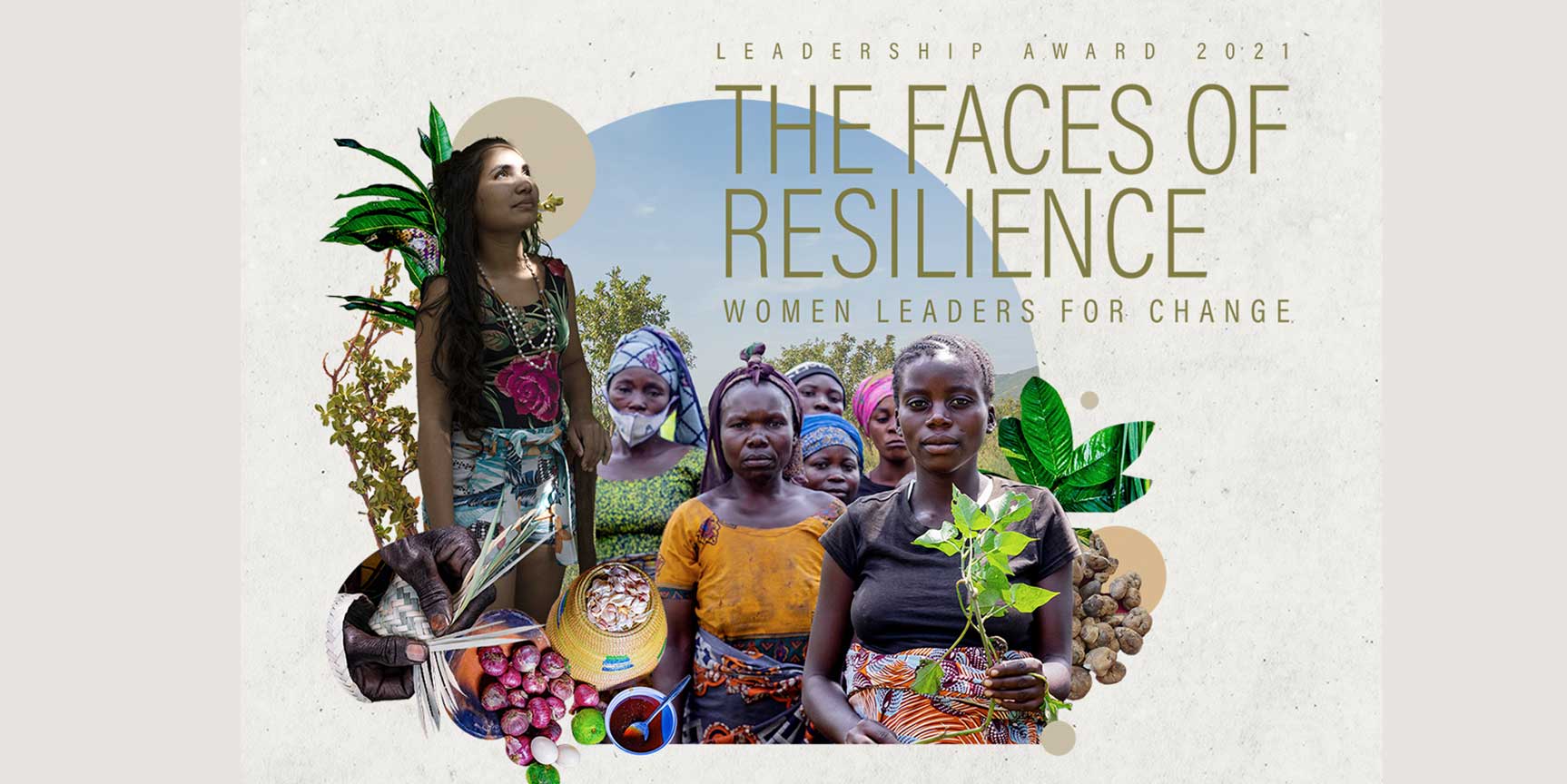
FIMI awards the 2020 “Leadership Award” to three organizations from Kenya, Peru and Cambodia for their work in conserving their environment and mitigating climate change
For 2020, the award was dedicated to the protection and conservation of the earth to highlight how Indigenous Women, far from resigning themselves to quietly suffering the consequences of the climate crisis, are rising up, taking action and offering transformative solutions to local problems with a global impact. The three award-winning organizations are working for all of humanity as stewards of their environment and natural resources. They exemplify ways of living in harmony with Mother Earth.
The “Leadership Award” is an initiative of the International Indigenous Women’s Forum (FIMI) that, since 2013, offers public recognition and cash prizes to Indigenous Women or groups of Indigenous Women. The award was created to “show the world that Indigenous Women are agents of change who work to support not only our own life, but all life in the universe”, stressed Teresa Zapeta, Executive Director of FIMI, at the ceremony—held virtually because of the pandemic—on Friday, May 21, 2021.
This year, the Paran Women’s Group of Kenya (Africa), the Aguaruna Huambisa Council (CAH) of Peru (Latin America and the Caribbean) and the Cambodian Indigenous Women’s Working Group (Asia), have been recognized for their perseverance, collective effort and leadership in ensuring that forests remain forests, rainwater continues to generate life, and extractive industries remain far from their territory.
Paran Women’s Group (Kenya)
The Paran Women’s Group of Kenya is an organization that brings together 24 groups of Indigenous Women from the county of Narok to jointly solve the multiple challenges they face on the African continent. The group was created in 2005 to solve the water shortage that was caused in the region by the deforestation of the Mau Forest—considered a water catchment area for the whole country—and by climate change. “The strength of Paran women lies in unity,” stressed Naiyan Kigaplat, president of the organization.
Indigenous Women began to reforest the slopes of the Mau Forest where they live by establishing forest nurseries and by planting indigenous, medicinal and fruit trees. They also led activities to help preserve Mother Earth and mitigate climate change, such as manufacturing charcoal from forest waste to avoid cutting down trees for firewood; planting ecological and sustainable gardens with crops that use less water; and installing water collection systems to avoid wasting water.
While serving the greater good, all these activities also guarantee the food security of Indigenous Women and their communities, and even contribute to their independence and economic empowerment. The Paran Group has also held workshops and training sessions throughout the county to educate Indigenous Women on the importance of protecting the land and fighting for their rights, sharing best practices with other Indigenous Communities and spreading change throughout the country.
Aguaruna Huambisa Council (Peru)
The Aguaruna Huambisa Council (CAH) is an indigenous organization of the Peruvian Amazon. It brings together 50 groups from the Awajún and Wampis communities from five basins in the Condorcanqui and Bagua provinces. Founded in 1977, the CAH was the first indigenous organization able to unite the Awajún and Wampis peoples under the same action group and political banner to defend their land and territory from the invasion of external actors and the extraction of their natural resources. The CAH is part of ORPIAN, the Regional Organization of Indigenous Peoples of the Northern Peruvian Amazon, and of AIDESEP, the Inter-Ethnic Association for the Development of the Peruvian Jungle, which gathers 64 Amazonian Indigenous Peoples of Peru.
In 2017, the CAH appointed Raquel Caicat as president. It was the first time in the organization’s 40 years of history that an Indigenous Woman held this position. Raquel Caicat’s leadership also symbolizes the success of a process of struggle to include Indigenous Women in political participation and decision-making positions within indigenous organizations.
Furthermore, Raquel Caicat has fostered a more harmonious vision of the struggle for the earth, based on the occupation of the territory through the cultivation of integral fields of cocoa, peanuts, corn, bananas and other vegetables, as well as livestock farming and the development of fish farms to compensate for the shortage of fish in the rivers’ contaminated waters. As Raquel Caicat says, “better to occupy and work the land than to scream and shout”. These actions have engaged Indigenous Women in the fight for their territory while building community.
Cambodian Indigenous Women’s Working Group
The Cambodian Indigenous Women’s Working Group (CIWWG) is an organization that brings together 57 Indigenous Women from different communities to jointly face issues of violations of rights related to the land and territories.
In Cambodia, most Indigenous Communities do not hold the titles for their communal lands. The State grants companies land concessions for economic development, which leaves Indigenous Women, who are in charge of growing food for their families, without land on which to grow their sustenance.
Faced with this situation, they created the CIWWG to support each other through the process of registering communal lands and obtaining the property titles. Sreymom Choeun, president of the organization, explains: “If we can get the titles to the communal lands, the companies will not be able to come, because we will have a certificate with which to claim our rights from the government.”
The CIWWG also leads campaigns with Indigenous Women to build awareness on their rights, organizing events to promote Indigenous culture and identity with the intention of putting an end to all forms of discrimination.
The call for the 2021 Leadership Award is about to open its application period in mid-June. The theme of this year’s edition will be focused on community practices to face COVID-19





